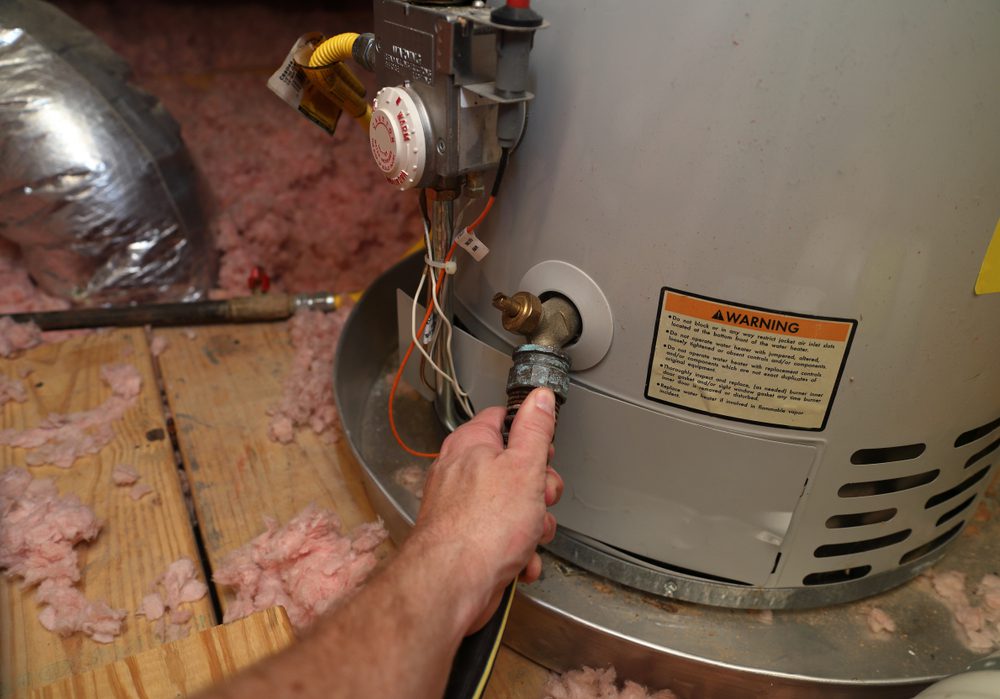This post which follows in relation to Is Your Water Heater Leaking? is quite remarkable. Have a go and make your own personal ideas.

A hot water heater is among the most crucial basic devices that can be discovered in a home. With water heaters, you don't need to undergo the stress and anxiety of home heating water by hand every single time there is a need to take a bath, do the laundry, or the recipes. Nonetheless, there is constantly an opportunity that your hot water heater would act up similar to the majority of mechanical devices.
It is important to keep in mind any kind of little malfunction and tackle it swiftly prior to points get out of hand. Most times, your hot water heater starts to malfunction when there is a build-up of debris as a result of constant usage. As a precaution, routine flushing of your water heater is recommended to avoid debris build-up and prevent practical failure.
Usual water heater emergency situations and exactly how to manage them
Insufficient warm water
It might be that the water heating unit can't support the warm water demand for your house. You might upgrade your water heater to one with a larger capability.
Rising and fall water temperature.
Your water heating unit might begin producing water of various temperatures typically ice hot or cold hot. There could be a demand to change either the heating or the thermostat system of your water heating unit.
Leaking hot water heater container.
In this situation, you ought to turn off your water heating unit, enable it to cool down, and also carefully look for the source of the problem. At times, all you need to do is to tighten a couple of screws or pipeline links in instances of minor leaks. If this doesn't work and also the leakage lingers, you may require to employ the solutions of a professional for a suitable replacement.
Tarnished or stinky water
When this takes place, you need to understand if the concern is from the tank or the water source. If there is no amusing smell when you run chilly water, after that you are certain that it is your water heating unit that is malfunctioning. The smelly water can be created by corrosion or the build-up of microorganisms or sediments in the water heating system tank.
Final thought
Some homeowners ignore little warning as well as minor faults in their hot water heater unit. This only results in additional damage and a possible total breakdown of your appliance. You ought to handle your hot water heater mistakes as quickly as they come near prevent more costs and unnecessary emergency difficulties.
With water heating units, you don't need to go via the stress and anxiety of home heating water manually every time there is a need to take a bathroom, do the washing, or the meals. It may be that the water heating system can't support the warm water demand for your apartment. Your water heater could start creating water of various temperature levels usually ice chilly or hot warm. If there is no amusing odor when you run cold water, then you are certain that it is your water heating unit that is defective. The smelly water can be created by rust or the build-up of microorganisms or sediments in the water heating unit container.
Common Water Heater Issues and What You Should Do
What Type of Water Heater Do You Have?
Before we begin it’s first important that you identify the type of water heater you have on your property. There are two main types of water heaters out there: conventional and high efficiency.
Both of these types of products typically use either gas or electricity to heat power. There are also solar water heaters that use a thermal collector on the roof or yard to heat the water.
While these models are not as common, they can cut heating costs in half. In this article, we will focus on conventional and high efficiency.
How Do My Electric and Gas Water Heater Work?
Though they look similar, electric and gas water heaters work very differently. It’s important to know their basic function because often problems can be specific to the heating source.
In the electric model, a thermostat on the side of the machine detects the temperature of the water in the tank. When the temperature needs to rise electricity flows to a heating element suspended in the water.
Gas models also use a thermostat device — typically with a mercury sensor at the tip and an additional sensor called a thermocouple. The thermocouple detects whether the pilot light is on and controls the flow of gas.
When the thermostat drops below the appropriate level gas is released which becomes ignited by the pilot light. The flame heats the bottom of the water tank which causes hot water to rise and cold water to drop.
This natural circulation continues until the water reaches the desired temperature. Then, the thermostat triggers the gas control valve to shut off the flow of gas.
What Are the Most Common Issues and How Do You Fix Them?
https://happyhiller.com/blog/common-water-heater-issues-and-what-you-should-do/

I was guided to that article on Is Your Water Heater Leaking? through someone on another web page. Sharing is caring. You just don't know, you might be doing someone a favor. I am grateful for your time. Visit again soon.
24/7 emergency? We're here!